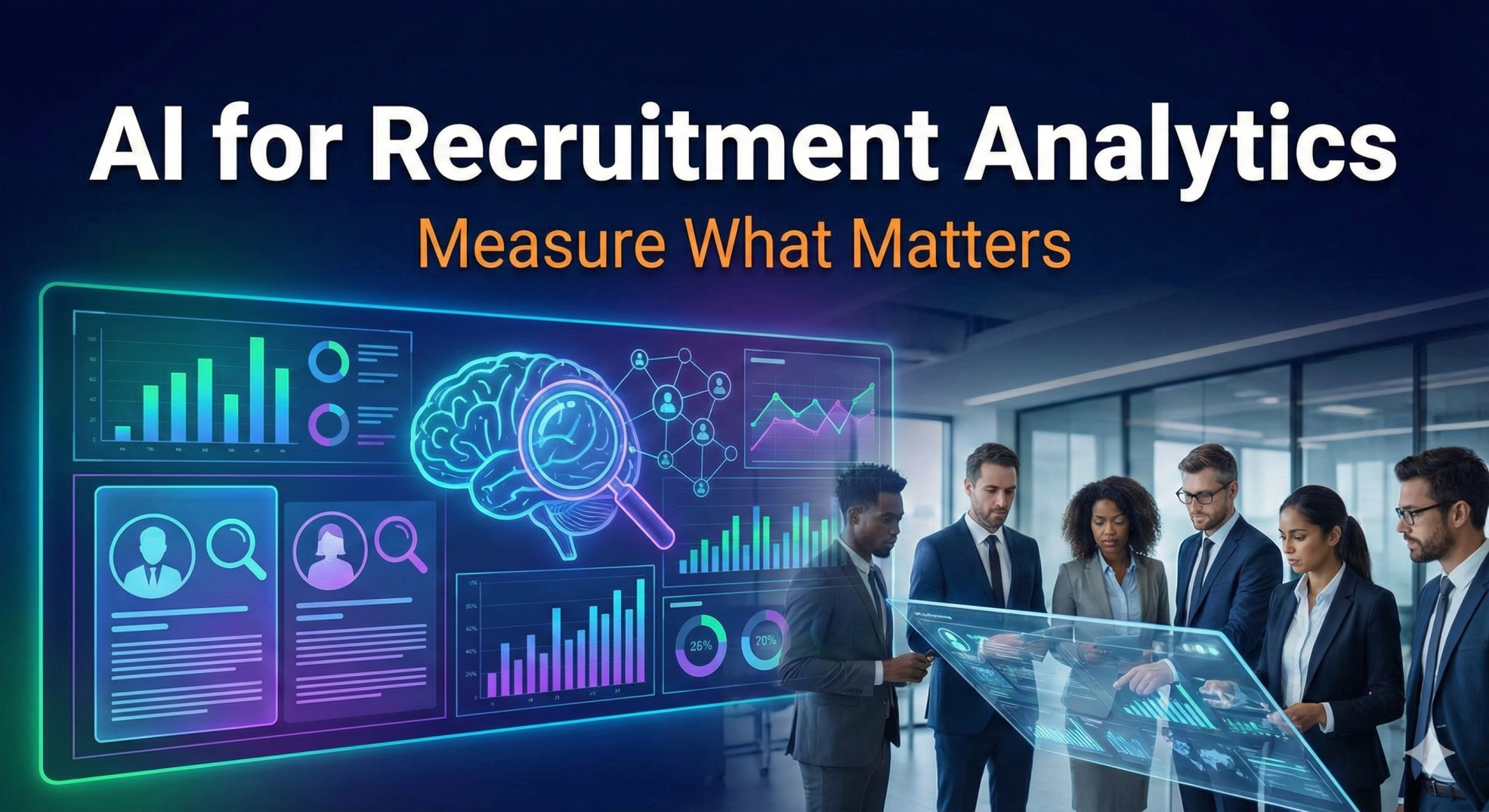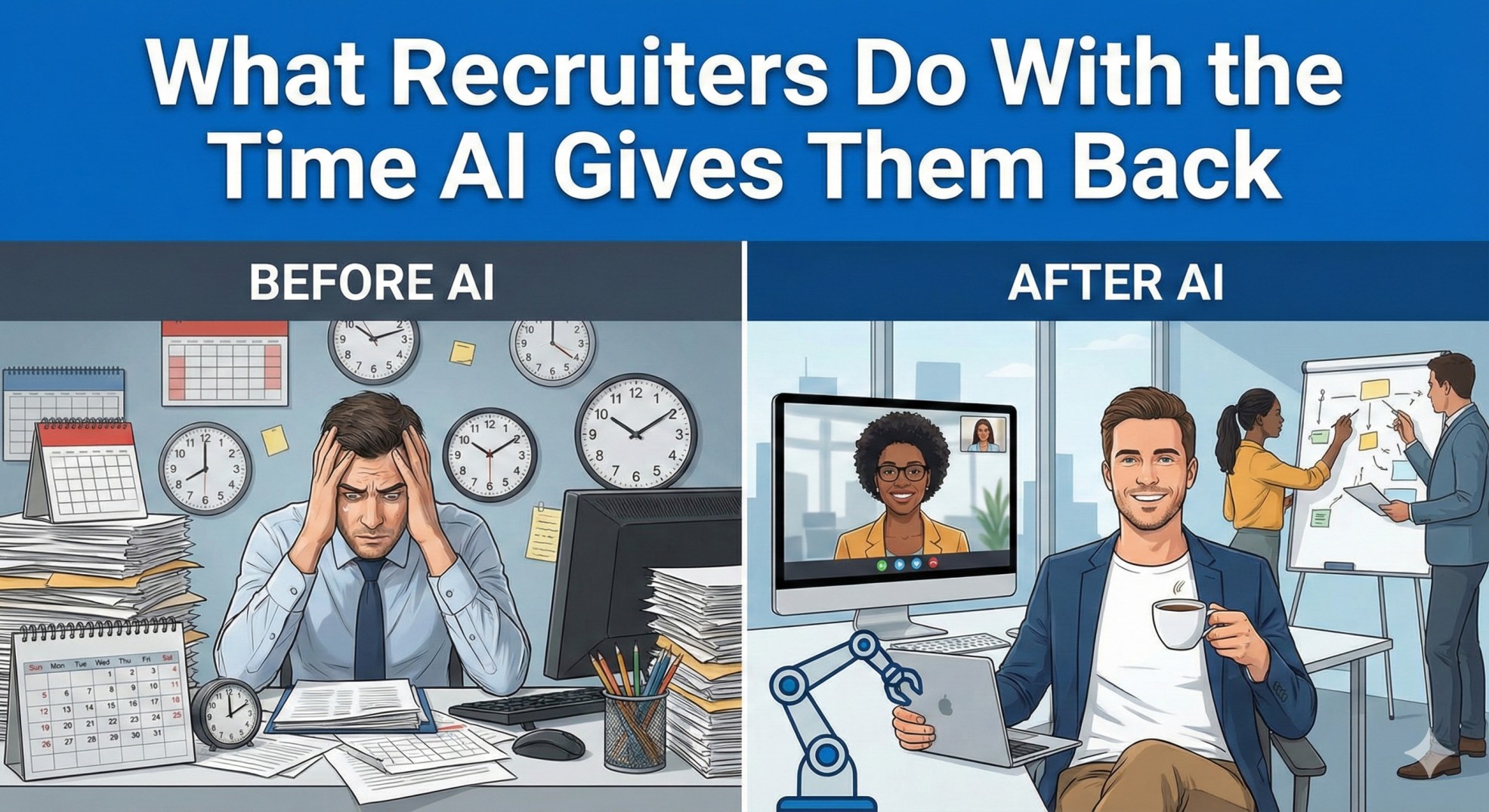Bridging the Gap: Soft Skills in the Age of AI Recruitment

The remarkable integration of Artificial Intelligence (AI) technologies in AI-powered recruitment software has long been recognized for its transformative impact. AI tools such as ChatGPT and Gemini have revolutionized key aspects of the recruitment process, streamlining tasks like AI-powered job descriptions and crafting assessment questions with unparalleled efficiency. Automation has undeniably alleviated the burden of high-effort, time-consuming activities such as posting job listings and managing routine communication, liberating recruiters to focus on strategic initiatives within AI recruitment.
However, as the recruitment landscape continues to evolve, it's becoming increasingly evident that technology alone cannot suffice. While AI excels at automating repetitive tasks, the essence of recruitment lies in the delicate interplay between humans and technology. In this paradigm, human-centered "soft" skills emerge as indispensable assets for recruiters navigating the complexities of the age of AI recruitment.
Of course, soft skills can’t entirely replace the technical knowledge and “hard” skills that will drive innovation through AI. But they can deliver benefits and outcomes that automation and code alone cannot. Here’s a look at the five soft skills that will matter most to recruiters in the age of AI recruitment.
Communication skills have always been make-or-break for recruiters. Recruiter chatbots, which can set up interviews, assist candidates with basic inquiries, and do preliminary screenings, are becoming more and more common thanks to artificial intelligence. But while these chatbots facilitate conversation starters, recruiters who are good at connecting with candidates still have an edge. They are better able to extract relevant information during candidate Interviews.
Meanwhile, artificial intelligence still struggles to build trust, understand motivations on a deeper level, or navigate complex and subjective issues. Hence, active listening emerges as a critical skill for recruiters in the age of AI recruitment. It enables individuals to engage deeply in conversations by attentively observing both verbal and nonverbal cues. Feeling acknowledged and understood, along with clear and timely candidate communication, plays a pivotal role in creating a positive candidate experience. This experience is vital as it not only shapes candidates' perceptions of the company they're applying to but also influences how they talk about it, regardless of the outcome of their application.
AI can provide recruiters with a plethora of data and a range of viable solutions for a variety of issues related to AI recruitment. Which one is correct, though? Finding the right course of action requires the application of soft skills like analysis, appraisal, and inquisitiveness in addition to critical thinking and informed decision-making. The ability to think critically enables recruiters to sift through a vast amount of information, identifying the key data points and ideas that align best with company objectives.
Furthermore, critical thinking skills are essential for making data-driven decisions regarding the increasing array of AI recruitment solutions available and determining the most suitable options for deployment and timing.
As organizations increasingly prioritize diversity, equity, and inclusion (DEI), it's crucial to integrate these values into the technology they employ for AI recruitment. Although AI tools like intelligent screening software can be customized to search for specific criteria, they aren't capable of completely eradicating bias. This underscores the importance of soft skills. To authentically incorporate DEI principles into their work, recruiters must emphasize cultural intelligence. By honing and leveraging these skills alongside automation, they can embed DEI initiatives into both sourcing and hiring procedures.
Although AI tools and technology can aid in filtering resumes and identifying optimal job-resume matches within the realm of AI recruitment, they fall short in establishing personal connections with candidates.
Relationship-building, regarded as a crucial soft skill, plays a pivotal role in establishing and nurturing a network of talent pools, as well as forging connections with candidates directly. Notably, according to LinkedIn's Future of Recruiting research, 73% of industry professionals anticipate relationship-building to rank among the most essential soft skills in the upcoming five years. Particularly in a competitive talent marketplace, cultivating strong connections with top talent might prove to be the key to success in AI recruitment. Complementary soft skills like teamwork, interpersonal communication, and leadership can further streamline the intricate hiring journey, instilling confidence in both employers and candidates to navigate the process effectively.
With AI continuously transforming how tasks are performed and data is analyzed in AI recruitment, recruiters must adapt to new tools and methodologies to remain effective. Being adaptable allows recruiters to embrace innovations, navigate changes in job market trends, and tailor their strategies to meet evolving candidate expectations. This ensures they can effectively leverage AI tools while maintaining the human touch necessary for successful recruitment outcomes.
As artificial intelligence continues to reshape the recruitment landscape, it's evident that simply mastering the technical aspects of new technologies within AI recruitment isn't enough. Recruiters must also cultivate a range of soft skills to harness the potential of these tools fully. Skills such as effective communication, empathy, relationship-building, critical

.jpg)






